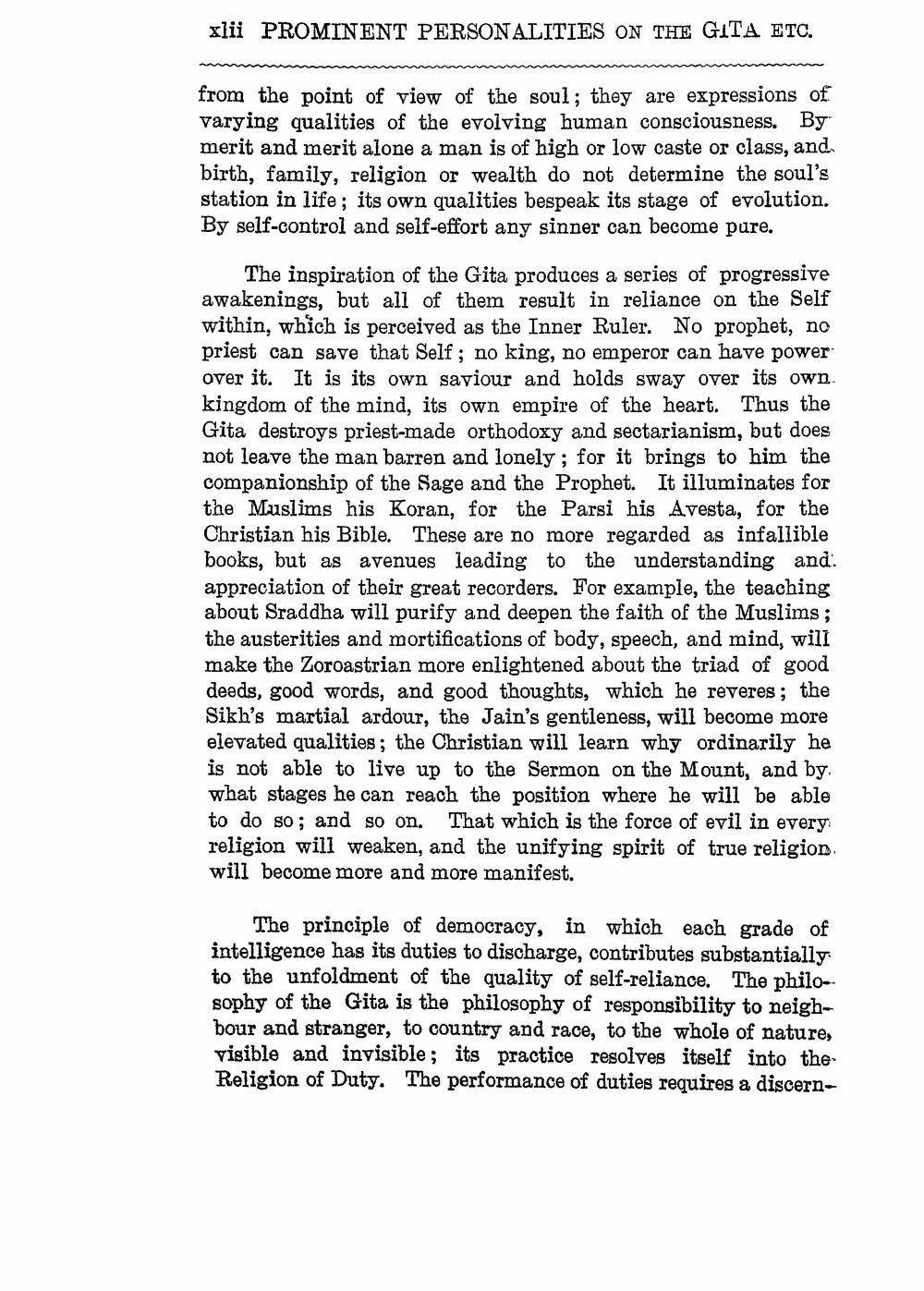________________
xlii PROMINENT PERSONALITIES ON THE GITA ETC.
from the point of view of the soul; they are expressions of varying qualities of the evolving human consciousness. By merit and merit alone a man is of high or low caste or class, and birth, family, religion or wealth do not determine the soul's station in life; its own qualities bespeak its stage of evolution. By self-control and self-effort any sinner can become pure.
The inspiration of the Gita produces a series of progressive awakenings, but all of them result in reliance on the Self within, which is perceived as the Inner Ruler. No prophet, no priest can save that Self; no king, no emperor can have power over it. It is its own saviour and holds sway over its own. kingdom of the mind, its own empire of the heart. Thus the Gita destroys priest-made orthodoxy and sectarianism, but does not leave the man barren and lonely; for it brings to him the companionship of the Sage and the Prophet. It illuminates for the Muslims his Koran, for the Parsi his Avesta, for the Christian his Bible. These are no more regarded as infallible books, but as avenues leading to the understanding and appreciation of their great recorders. For example, the teaching about Sraddha will purify and deepen the faith of the Muslims; the austerities and mortifications of body, speech, and mind, will make the Zoroastrian more enlightened about the triad of good deeds, good words, and good thoughts, which he reveres; the Sikh's martial ardour, the Jain's gentleness, will become more elevated qualities; the Christian will learn why ordinarily he is not able to live up to the Sermon on the Mount, and by what stages he can reach the position where he will be able to do so; and so on. That which is the force of evil in every religion will weaken, and the unifying spirit of true religion, will become more and more manifest.
The principle of democracy, in which each grade of intelligence has its duties to discharge, contributes substantially to the unfoldment of the quality of self-reliance. The philosophy of the Gita is the philosophy of responsibility to neighbour and stranger, to country and race, to the whole of nature, visible and invisible; its practice resolves itself into the Religion of Duty. The performance of duties requires a discern




